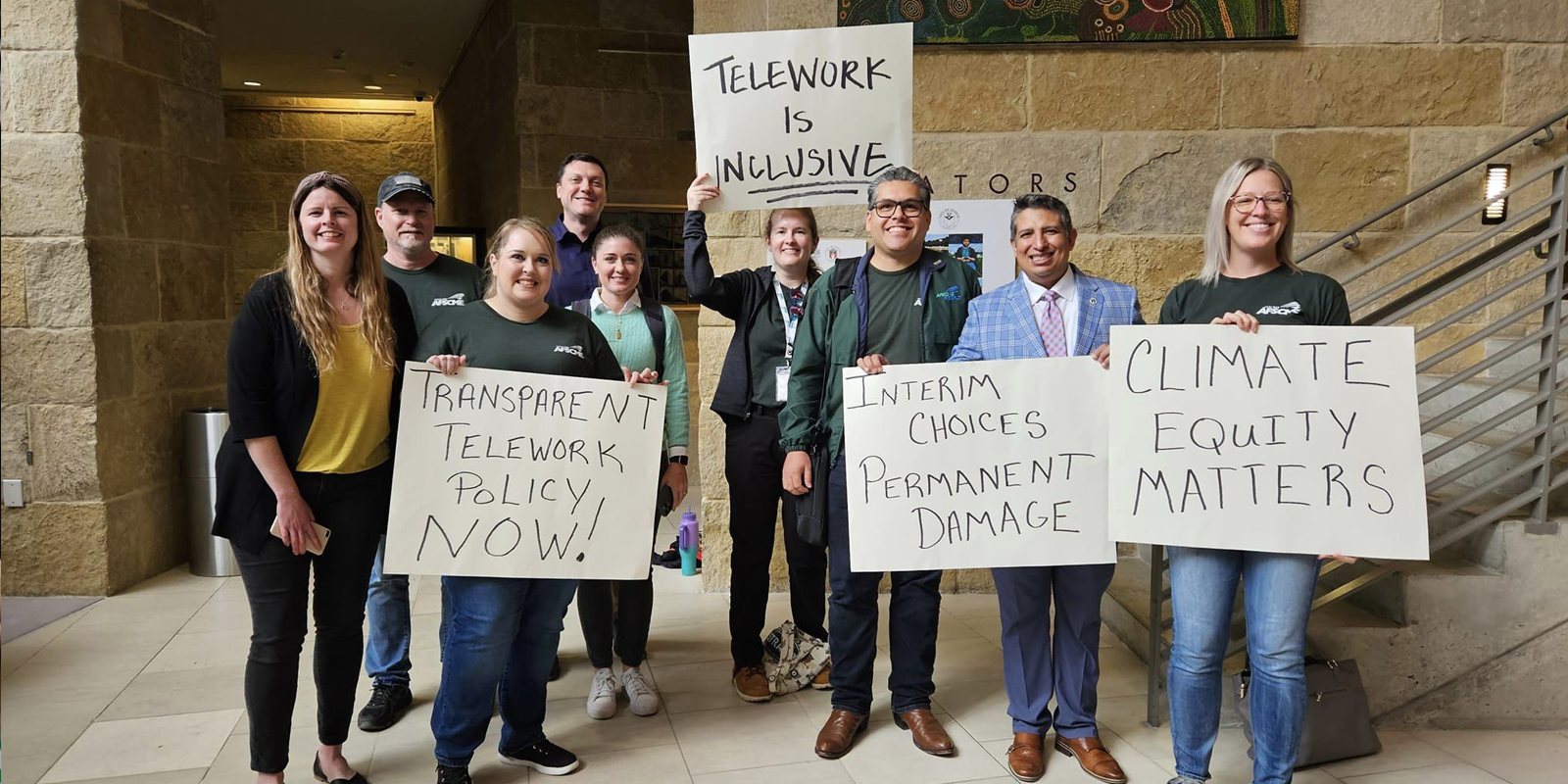The persistence of AFSCME Local 1624 members has protected thousands of Austin city workers’ telework schedules that were on the chopping block. This past summer, the interim city manager shocked city workers when he announced a return-to-work policy that mandated employees to report to the office at least three days a week, a stark change from the mostly 100% telework schedules they had been working since 2020 due to the COVID-19 pandemic.
Since the announcement, Local 1624 members have rallied for telework at City Hall, mobilized each other through one-on-one conversations, and negotiated with the city to maximize telework for employees who are able to perform their jobs remotely. They identified more than 1,000 positions that are eligible for 80%-100% telework schedules, made sure thousands of positions are eligible for 50% telework, and established an impartial process for employees to file for exemption if they believe they can telework for more than 50% of their work schedule.
One city employee, who asked not to be named for fear of retaliation, shared her experience of how telework has been a necessary accommodation for her compromised immune system. The city’s human resources department originally declined her request for telework as an accommodation under the American with Disabilities Act, but members of Local 1624 negotiated with the department to appeal that decision. The employee expressed gratitude for the ability to work from home, which saved her job and reduced stress on her health.
Teleworking not only provides much-needed accommodations and work-life balance for workers but also makes transformational improvements to the city. According to a post on Local 1624 members’ blog, telework schedules decrease Austin’s carbon emissions and traffic, helping the city achieve its goals of net-zero carbon emissions by 2040 and improved mobility for everyone to get around Austin.
Members of Local 1624 emphasized the importance of aligning the telework policy with climate and mobility goals to encourage management to do their part by allowing the maximum amount of telework that is feasible. The City of Austin can lead by example in working towards these goals and promoting a more sustainable and efficient way of working.
In conclusion, the persistence and advocacy of AFSCME Local 1624 members have successfully protected telework schedules for Austin city workers, providing essential accommodations, work-life balance, and contributing to the city’s environmental and mobility goals. Their efforts showcase the power of collective action in advocating for positive change in the workplace and the community.



















